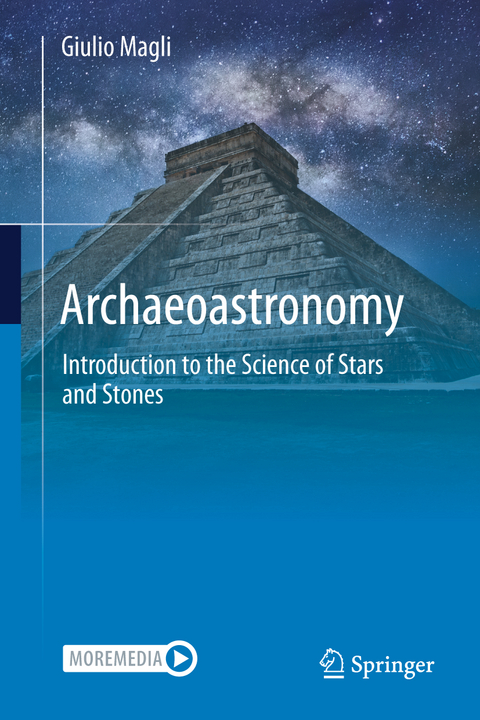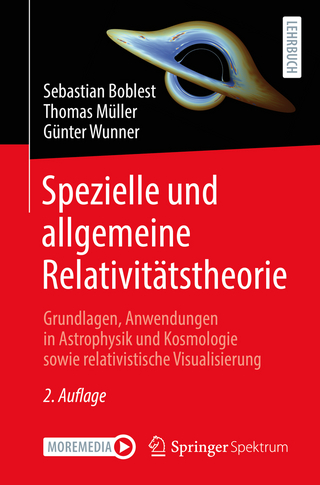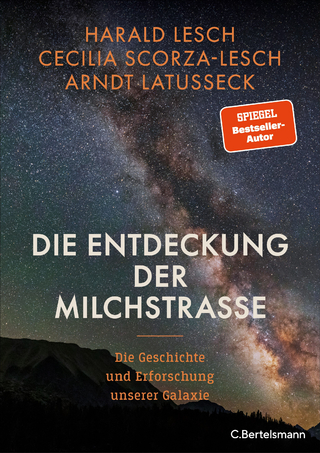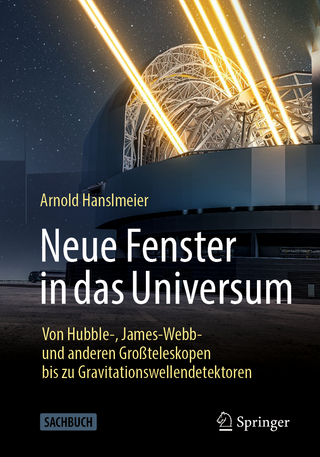
Archaeoastronomy
Springer International Publishing (Verlag)
978-3-031-74959-9 (ISBN)
- Noch nicht erschienen - erscheint am 06.02.2025
- Versandkostenfrei innerhalb Deutschlands
- Auch auf Rechnung
- Verfügbarkeit in der Filiale vor Ort prüfen
- Artikel merken
This book provides the first comprehensive, easy-to-read, and up-to-date account of the fascinating discipline of archaeoastronomy, in which the relationship between ancient constructions and the sky is studied to gain a better understanding of the ideas of the architects of the past and their religious and symbolic worlds. The book is divided into three sections. The first section discusses in detail the fundamentals of archaeoastronomy, including the celestial coordinates, the apparent motion of the sun, moon, stars, and planets, observation of celestial bodies at the horizon, the use of astronomical software in archaeoastronomy, and current methods for making and analyzing measurements . The second part explores the past relations between astronomy and people, power, the afterworld, architecture, and landscape The final section reviews what archaeoastronomy can now tell us about the nature and purpose of such sites and structures as Stonehenge, the Pyramids of Giza, Chichen Itza, the Angkor Temples, the Campus Martius, Machu Picchu and the Valley of the Temples of Agrigento. Additionally, it provides a set of exercises that can be performed using non-commercial free software, e.g., Google Earth and Stellarium, and that will equip readers to conduct their research. This book is an ideal introduction to what has become a wide-ranging multidisciplinary science. This newly revised edition includes the most recent research on Stonehenge, ancient Japan, and other sites worldwide.
Giulio Magli is an Italian astrophysicist/archaeoastronomer who works primarily on the relationship between the architecture of ancient cultures and the sky. After receiving his Ph.D. in mathematical physics at the University of Milan, he initially conducted research in relativistic astrophysics but gradually moved toward archaeoastronomy, with a special interest in the relationship between architecture, landscape, and the mathematical/astronomical lore of ancient cultures, especially among the ancient Egyptians but also among the Incas, in Asia and in the Mediterranean. He became a full professor of mathematical physics at the Politecnico of Milan in 2005, and he is currently the head of the FDS Laboratory for the Communication of Science there. Since 2009, he has taught the only official course on archaeoastronomy ever established in an Italian University. His previous books include Mysteries and Discoveries of Archaeoastronomy (Springer 2009) Architecture, Astronomy and Sacred Landscape in Ancient Egypt (Cambridge University Press 2013) and Sacred Landscapes of Imperial China (Springer 2020). He has taught the first-ever massive open online course on archaeoastronomy. The course is freely available on the Politecnico of Milan POK and Coursera’s MOOC platforms.
Introduction.- Methods.- Astronomy with the Naked Eye.- Acquiring Data.- Data Analysis.- Ideas.- Astronomy and Architecture at the Roots of Civilization.- Astronomy, Power, and Landscapes of Power.- The Scientific Foundations of Archaeoastronomy.- Megalithic Cultures of the Mediterranean.- Ancient Egypt.- The Hopewell.- The Mayas.- The Incas.- Ancient China.- Cambodia and Java.- Ancient Japan.- Pre-columbian Cultures.- The Classical World.- Exercises.
| Erscheint lt. Verlag | 6.2.2025 |
|---|---|
| Zusatzinfo | VIII, 298 p. 188 illus., 143 illus. in color. |
| Verlagsort | Cham |
| Sprache | englisch |
| Maße | 155 x 235 mm |
| Themenwelt | Naturwissenschaften ► Physik / Astronomie ► Astronomie / Astrophysik |
| Schlagworte | Archaeoastronomy Textbook • Archaeology of the Landscape in the Archaeoastronomy Textbook • Astronomical Software in the Archaeoastronomy Textbook • Astronomical Value of Cultural Heritage • History of Ancient Astronomy • Methods of Archaeoastronomy • Relationship between Architecture and Astronomy • Stonehenge Astronomy |
| ISBN-10 | 3-031-74959-6 / 3031749596 |
| ISBN-13 | 978-3-031-74959-9 / 9783031749599 |
| Zustand | Neuware |
| Haben Sie eine Frage zum Produkt? |
aus dem Bereich


